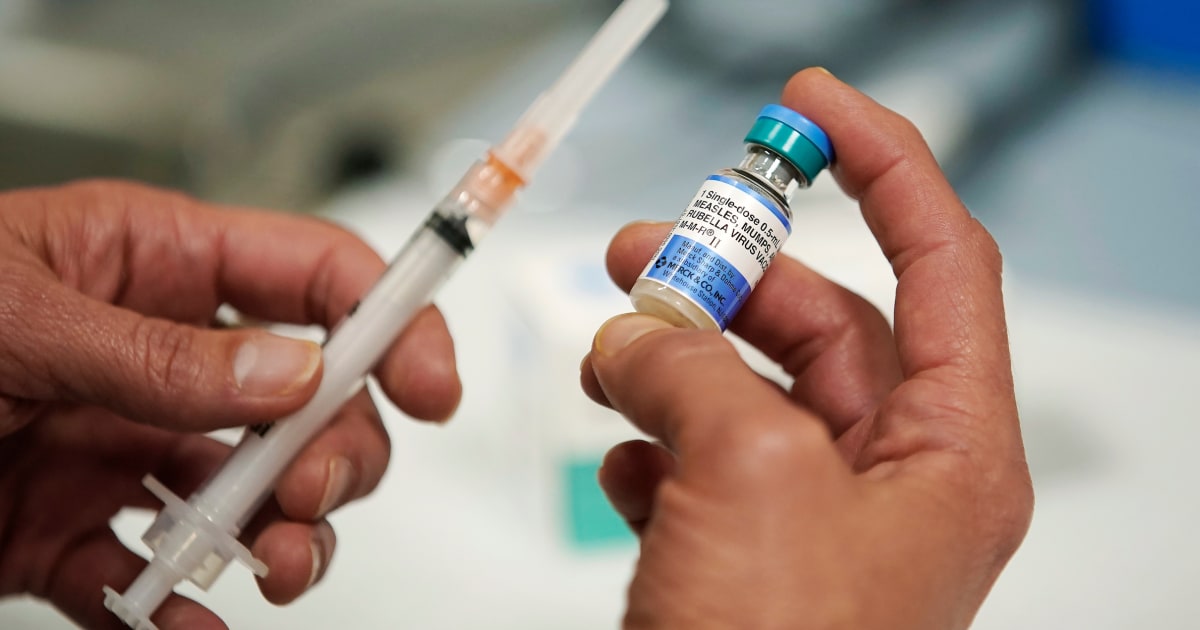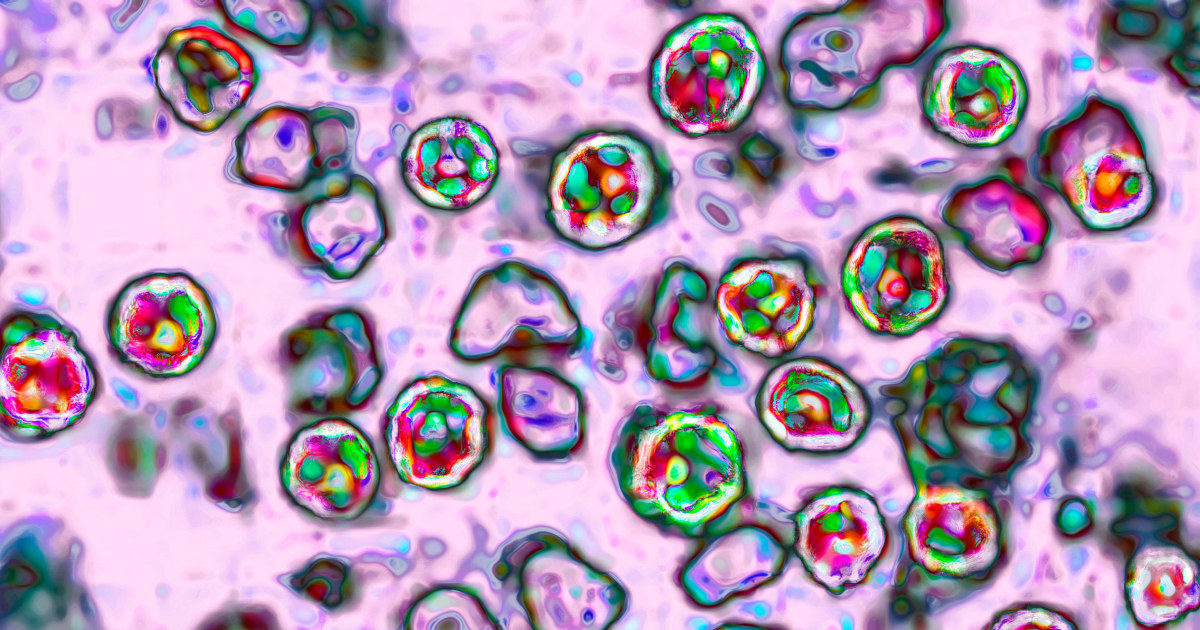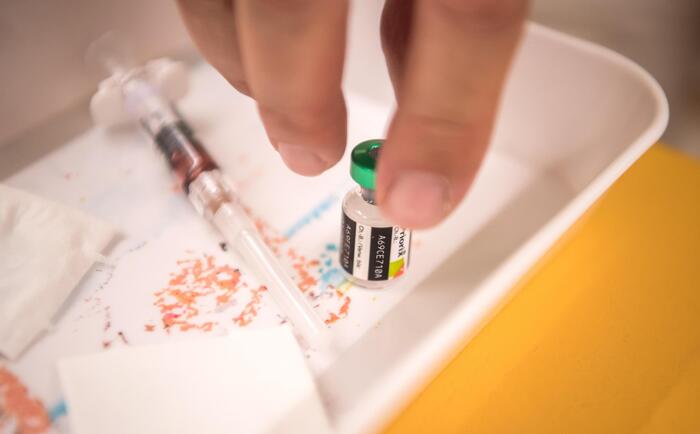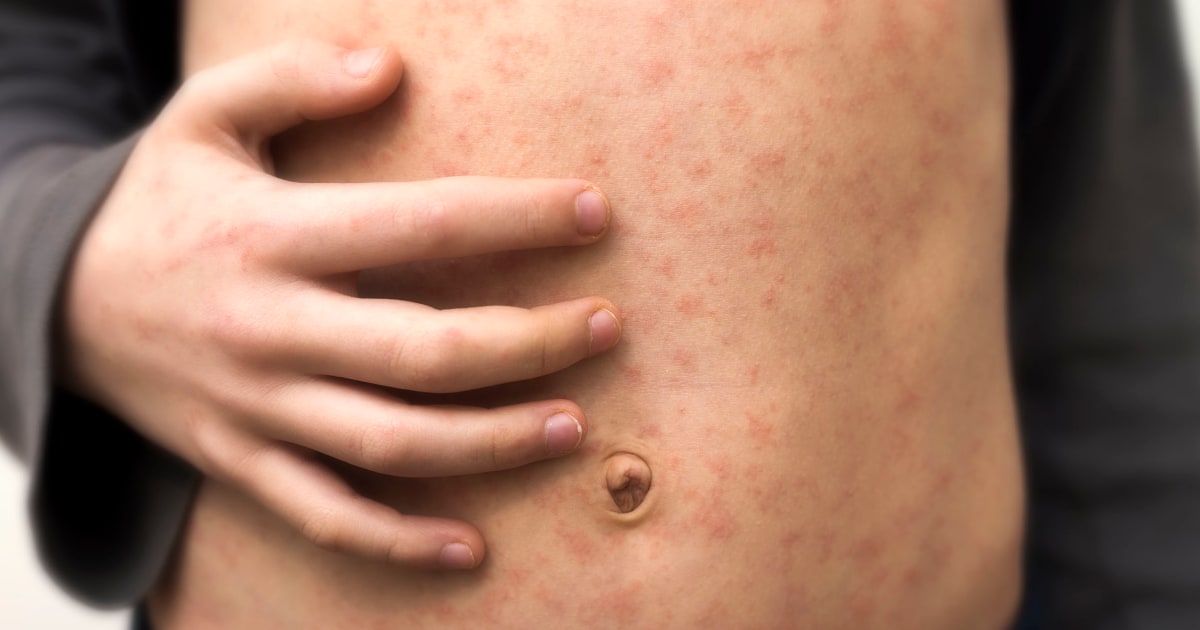Could the delta variant become dominant?
2:01
(CNN) -
Unvaccinated people do more than risk their own health.
They are also a risk for everyone if they become infected with the coronavirus, infectious disease specialists say.
That's because the only source of new variants of the coronavirus is the body of an infected person.
"Unvaccinated people are potential variant factories," Dr. William Schaffner, a professor in the Division of Infectious Diseases at Vanderbilt University Medical Center, told CNN on Friday.
"The more unvaccinated people there are, the more opportunities the virus has to multiply," Schaffner said.
"When it does, it mutates and could trigger a variant mutation that is even more serious in the future."
All viruses mutate, and although the coronavirus is not particularly prone to mutations, it changes and evolves.
Most changes mean nothing to the virus, and some can weaken it.
But sometimes a virus develops a random mutation that gives it an advantage: better transmissibility, for example, or more efficient replication, or the ability to infect a wide variety of hosts.
advertising
What happens if you are vaccinated and you get the delta variant of covid-19?
Viruses with an advantage will compete with other viruses and will eventually make up the majority of virus particles that infect someone.
If that infected person passes the virus to someone else, they will pass on the mutant version.
If a mutant version is successful enough, it becomes a variant.
But it has to replicate itself to do that.
An unvaccinated person provides that opportunity.
"As mutations in viruses emerge, the ones that persist are the ones that facilitate the spread of the virus in the population," Andrew Pekosz, a microbiologist and immunologist at the Johns Hopkins Bloomberg School of Public Health, told CNN.
'Every time viruses change, that gives the virus a different platform to add more mutations.
Now we have viruses that spread more efficiently.
Viruses that do not spread cannot mutate.
Variants have emerged around the world: the B.1,1.7 or alpha variant was first seen in England.
Variant B.1.351 or beta was first detected in South Africa.
The delta variant, also called B.1.617.2, was first seen in India.
And the United States has introduced several of its own variants, including the B.1.427 or epsilon lineage that was first seen in California, and the B.1.526 or eta variant that was first seen in New York.
Already, a new variant has spread throughout much of the world.
Last summer, a version of the virus carrying a mutation called D614G made its way from Europe to the United States and then to the rest of the world.
The change made the virus more successful, replicated better, so the version replaced the original strain that came out of China.
It appeared before people started naming the variants, but it became the default version of the virus.
Most of the newer variants added changes to the D614G.
The alpha variant, or B.1.1.7, became the dominant variant in the US in late spring thanks to its additional transmissibility.
Now the delta variant is even more transferable and will become the dominant variant in many countries, including the US.
Current vaccines protect well against all variants so far, but that could change at any time.
That's why doctors and public health officials want more people to get vaccinated.
Covid-19 in Latin America: this is how the week begins in some of the most affected countries in the region
"The more we allow the virus to spread, the more opportunities the virus has to change," the World Health Organization warned last month.
Vaccines are not widely available in many countries.
But in the US there is a lot of supply, with a slowdown in demand.
Only 18 states have fully vaccinated more than half of their residents, according to data from the US Centers for Disease Control and Prevention (CDC).
“Currently, approximately 1,000 counties in the United States have vaccination coverage of less than 30%.
These communities, primarily in the Southeast and Midwest, are the most vulnerable.
In some of these areas, we are already seeing rising rates of illness, ”CDC Director Dr. Rochelle Walensky said Thursday at a briefing at the White House.
"Every time we see the virus circulating in the population, particularly in a population that has foci of immune people, vaccinated people and foci of unvaccinated people, we have a situation where the virus can explore," Pekosz said.
If a virus tries to infect someone with immunity, it can fail or it can be successful and cause a mild or asymptomatic infection.
In that case, it will replicate in response to pressure from a primed immune system.
Why Covid-19 Outbreaks in Countries Using Chinese Vaccines Doesn't Necessarily Mean Vaccines Have Failed
Like a bank robber whose photo is on search posters everywhere, the virus that succeeds will be the virus that makes a random change that makes it appear less visible to the immune system.
Those populations of unvaccinated people give the virus change not just to spread, but to change.
"All it takes is a mutation in a person," said Dr. Philip Landrigan, a pediatrician and immunologist at Boston College.
CNN's Virginia Langmaid contributed to this story.
Covid-19InstaNews









